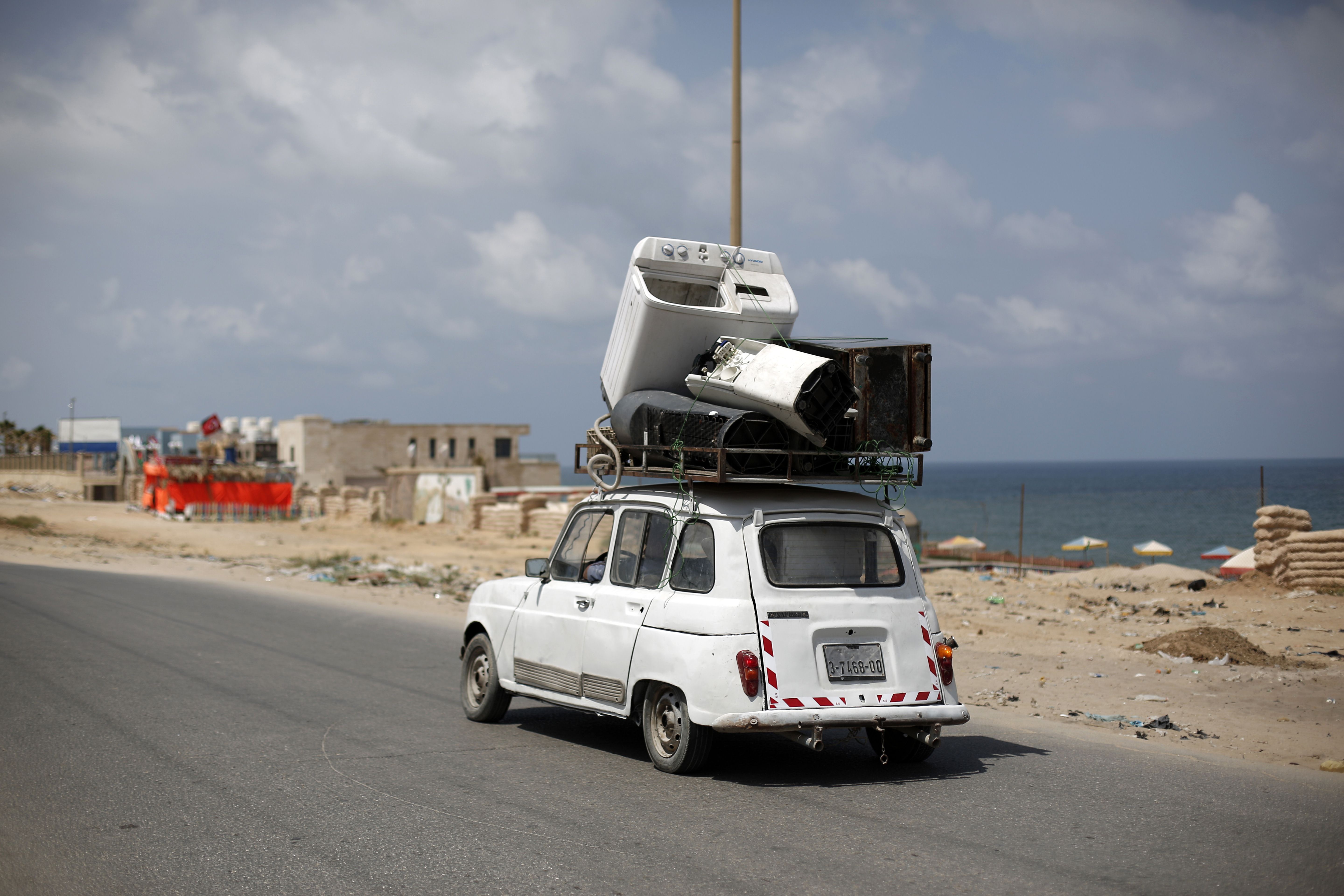The economy of Gaza - assailed by war, poor governance and a joint Israeli-Egyptian blockade - has reached the "verge of collapse" with the coastal strip suffering the highest rate of unemployment in the world, "Guardian" reported.
The bleak picture is presented in a devastating report by the World Bank, released on Friday, which said that Gaza's economy had been strangled by years of blockades, war and poor governance and faces a dangerous crisis over its ability to meet wages and other spending requirements.
Calling for the "lifting of the blockade on the movement of goods and people to allow Gaza's tradable sectors to recover" the report warned that about 43% of Gaza's 1.8 million residents are unemployed, with youth unemployment reaching about 60% by the end of last year.
Prepared ahead of the bi-annual meeting in Brussels next week of the Ad Hoc Liaison Committee, which coordinates international donor support for the Palestinians, the report is published almost a year after the 50-day conflict between Gaza militants and Israel, in which about 2,200 Palestinians were killed.
On the Israeli side, 67 soldiers and six civilians were killed.
"Gaza's unemployment and poverty figures are very troubling and the economic outlook is worrying. The current market in Gaza is not able to offer jobs, leaving a large population in despair, particularly the youth," said Steen Lau Jorgensen, World Bank country director for the West Bank and Gaza.
"The ongoing blockade and the 2014 war have taken a toll on Gaza's economy and people's livelihoods. Gaza's exports virtually disappeared and the manufacturing sector has shrunk by as much as 60%. The economy cannot survive without being connected to the outside world."
In uncompromising terms, the World Bank describes Gaza's economy as "tremendously damaged by repeated armed conflicts, the blockade and internal divide" and "reduced to a fraction of its estimated potential".
Gaza has been governed by the Islamist group Hamas since 2007 and has struggled with mounting problems since the closure of the smuggling tunnels to Egypt, which had acted as an economic and social pressure valve.
Hamas has struggled to pay salaries and also lost a key stream of revenue from its taxation of the smuggling route. Egypt has largely closed the Rafah terminal on its border since October, when it began work to create a buffer zone along the border and step up efforts to destroy the tunnel trade.
The report adds that real GDP per person has dropped by a third in the last 20 years.
The report, to be presented next week, says events in the last two years - including Egypt's closure of the smuggling tunnels and last summer's war - reduced Gaza's economy by almost half a billion dollars.
"The closure of tunnels with Egypt and in particular the 2014 summer war," say the report's authors, "shaved some $460moff Gaza's economy, leading to a 15% contraction of its GDP."
They add: "In Gaza, unemployment increased by as much as 11 percentage points to reach 43% - probably the highest in the world - and that in the West Bank it dropped by one percentage point.
"In Gaza, the poverty rate reached 39% and with poverty in the West Bank at 16%, the aggregate poverty rate amounted to 25%.
"Nevertheless, the growth in government recurrent expenditures of 9% was large and unsustainable; growth in the government wage bill and net lending are of particular concern.
Continuing, the report notes: "The human costs of Gaza's economic malaise are enormous. If it were compared to that of other economies, unemployment in Gaza would be the highest in the world.
"Poverty in Gaza is also very high. This is despite the fact that nearly 80% of Gaza's residents receive some aid. These numbers, however, fail to portray the degree of suffering of Gaza's citizens due to poor electricity and water/sewerage availability, war-related psychological trauma, limited movement, and other adverse effects of wars and the blockade."
The report also criticised the lacklustre pace of reconstruction and aid to Gaza since last year's conflict. Of the $3.5bn pledged by the international community for Gaza's reconstruction, just 27.5%, or nearly $1bn, has been disbursed so far.
